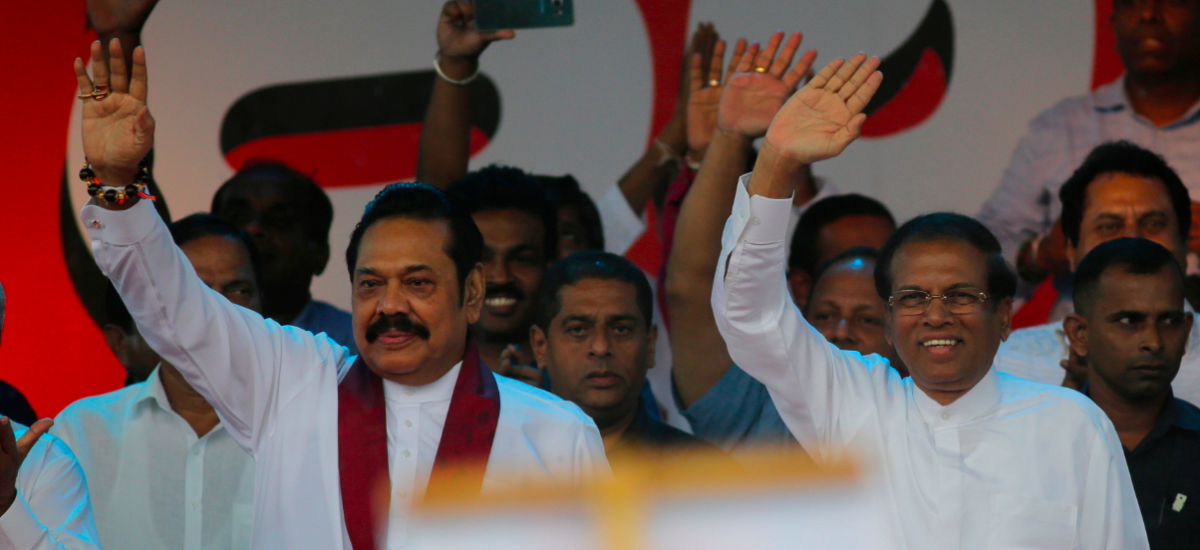Featured image courtesy The Arch
Sri Lanka’s politico-constitutional crisis has begun to show signs of deteriorating into an open struggle for state power, ensuing extra-parliamentary causes of action for its resolution. This path to potential violence and total retreat from democracy needs to be prevented forthwith.
Yet, at the moment there does not seem to be political space available or conditions conducive for such a peaceful end to the crisis.
Only the enlightened self-interest dawned on the main protagonists to the conflict can avert a confrontation with destructive political consequences. For them, particularly for Sri Lanka’s President and the two competing Prime Ministers, the time has come for exploring peaceful alternatives to the present deadlock, which is now moving in the direction of a dangerously volatile phase.
Paradoxically, parliament seems to be the new arena of contestation between the two sides. At the same time, and paradoxically, parliament is likely to be used not as a forum for mature debate and discussion for conflict resolution, but as an arena for, to borrow a phrase from George Orwell, ‘a war minus the shooting.’
This power struggle has been brewing for quite some time. What was initially a three-cornered one seems to have suddenly taken the form of a two-cornered, bipolar, power struggle.
The events amidst the rain and darkness on the evening of October 26 and the days that followed, have led to crystallization with utmost clarity, that Sri Lanka’s power elites have now drawn the battle lines clearly. Most worryingly, employing extra-parliamentary means to settle this ever-sharpening dispute for state power might even be viewed as an unavoidable political necessity, arising from political realism.
That provides the context for the possibility of parliament becoming the arena for extra-parliamentary solutions to the crisis. This is precisely the possibility that needs to be immediately averted.
The current status of the conflict shows that the resources, both institutional and intellectual available to the two camps of politicians, are fast becoming inadequate to settle the escalating conflict peacefully. Actually, now it is a political conflict that is fast moving beyond the limits of political capacity of the professional politicians and their advisors.
The conflict is now too serious to be left to politicians alone for its resolution.
This increasingly dangerous political situation calls for politico-moral intervention by religious and community leaders, respected elders, civil society movements, and concerned citizens.
Their moral intervention has great immediacy. It has to be, literally, today or tomorrow, before the convening of parliament on the 14th.
Editors Note: Read also The Political Is Personal – An Essay In Despair and The Constitutional Crisis: A Round Up

